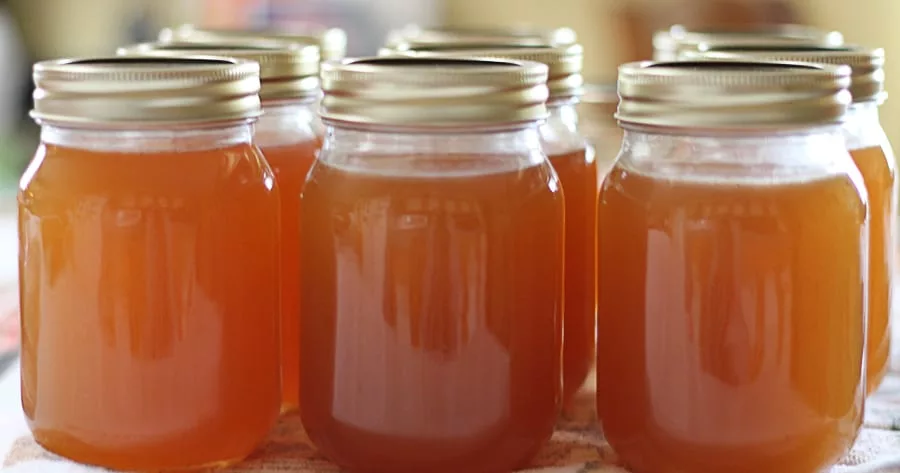
Home » To preserve or not to preserve: that is the question
To preserve or not to preserve: that is the question

August 14, 2018
By Marilou Shea
’Tis the season. You know the one I’m talking about. It involves lots of stove time, oodles of fresh, local produce, and those familiar-looking Kerr or Ball mason jars. No matter what berry or pickle you’re into, next to fresh, there is no substitute. Except one: canning or preserving food usually tastes better than what you have to buy in the grocery store come November.
I did a little research in terms of how canning contributes to commerce, but there’s no data that directly correlates home canners scaling to a commercial enterprise on a state or national level. Unless you consider products like Ragu. Yes, that one — the ubiquitous spaghetti sauce found on grocery store shelves across the country today. It has its origins in home canning.
Assunta Cantisano and her husband Giovanni founded the Ragu Packing Co. out of their home in Rochester, New York, in 1937, making spaghetti sauce in their basement and selling it on their front porch. They later expanded to a factory. In 1969, it was no longer a small family business and was sold to a large corporation.
I bet if you Google one of your favorite canned or jarred products, you’ll find the same scenario: a home kitchen, someone nuts about their recipe and a singular commitment to flavor.
Canning and preserving go way back. Way, way back. Before there were basements housing an extra fridge or freezer, there were root cellars. Back in the day, families would harvest not only for livelihood—but for their lives literally. They’d stash fresh produce in cool dark cellars to last their family through winter and the next harvest.
Some granddaughters today remember hauling up everything from the root cellar into a kitchen crowded with grandmas after harvest. Everyone brought produce and once the bounty was canned, the total quantity was split fair and square. Each canner went home with a variety of great tasting products.
“With the advancement of transportation, people no longer preserve foods out of necessity, they now have the choice to preserve—most generally do it for superior flavor and quality reasons,” observed LizAnn Powers-Hammond of Washington State University Extension-Benton County, the “master” of the Master Food Preservers program.
Growing up in the Columbia Basin, our mom canned a variety of produce for our family for those very two reasons. You’ll find them to be the two most popular reasons canners can. It comes down to chasing and capturing the essence of fresh flavor and a bit of food snobbery tossed in.
Powers-Hammond and I agreed on a third best reason to can and that is to support our local farmers and growers.
Without their enormous contributions, dead of winter would take on a whole new meaning in terms of pantry. For serial canner Tamara Millage, it was a love affair with pears and a friend’s blanching method that motivated her to can 52 quarts of pears a few years ago.
She’s also a certificated master food preserver through the Washington State University Extension-Benton County program.
Her advice: you can’t go rogue on safety rules and regulations. What worked for your mother or grandmother may not apply today. Besides, according to Powers-Hammond, Washington state and Northwest soils are high in botulism toxins that can attack the body’s nerves.
The Master Food Preserver program started in 1976 in our state. Within the next two years, the WSU Extension—Benton County Master Food Preserver program launched. Wisely, the program was modeled after the wildly successful Master Gardener programs, where one of the active status stipulations is that participants commit to 50 hours of volunteer time, among other requirements.
We’re fortunate not just for the bounty of products that growers provide us in Columbia Basin but Benton County is one of only two Master Food Preserver programs that exists in the state besides Clark County. The masters enjoy sharing their expertise with home canners on all things, but especially safety first and foremost, through workshops and phone calls. Their love of the process and quest to preserve flavor make them a wonderful resource to mentor novice and serial canners alike.
While there is no tracking of canning preferences at the county extension, anecdotally Powers-Hammond said that the most popular foods canned locally are tomatoes, tomato products (including salsa), pickles, pickled asparagus, peaches, pears and applesauce.
Maybe your favorite salsa recipe never goes commercial and your apple butter bears no resemblance to Grandma Lu’s, but you still have time this season to preserve the perfect products. It’s like opening summer in winter. What’s not to love?
Food Love columnist Marilou Shea is adjunct faculty for Columbia Basin College’s hospitality program and Food Truck Academy, as well as the creator of Food Truck Fridays.
Local News
KEYWORDS august 2018





